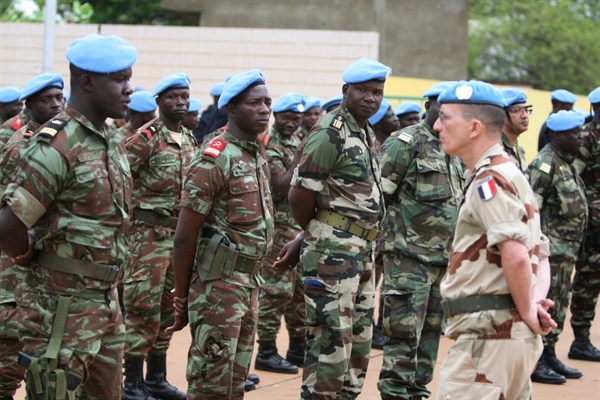Editor’s Note: Every Friday, WPR Associate Editor Robbie Corey-Boulet curates the top news and analysis from and about the African continent.
As United Nations peacekeeping missions struggle to adapt to sharp budget cuts, one of the factors that could affect future funding levels is the organization’s response to persistent allegations of sexual abuse by U.N. troops. Speaking at the U.N. Security Council earlier this year, Nikki Haley, the U.S. ambassador to the U.N., warned that the U.S. could withdraw money for missions that fail to combat abuse and hold perpetrators accountable.
New evidence of the U.N.’s shortcomings in cracking down on the problem emerged ahead of this week’s U.N. General Assembly. On Sept. 13, a campaign by the NGO AIDS-Free World revealed the contents of leaked files documenting the U.N.’s response to 14 abuse allegations in the Central African Republic involving peacekeepers from nine different countries, eight of them African. In eight of the cases, fact-finders did not interview alleged victims. In two other cases, alleged victims “were interviewed in hostile settings surrounded by large groups of men, many in uniform.” Moreover, AIDS-Free World said, the handling of the complaints showed “haphazard” procedures for moving cases along so that they could be investigated by troop-contributing countries, which are responsible for disciplining peacekeepers.

